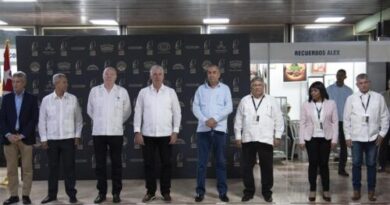[:es]U.S. Announces New Restrictions on Cuba Travels and Trade[:]
[:es]
 Washington, Nov 8.- The government of the United States today announced more restrictions to U.S. citizens interested in doing business with Cuba and traveling to the Caribbean island, by virtue of a presidential memorandum that reverses major aspects of the two countries” rapprochement.
Washington, Nov 8.- The government of the United States today announced more restrictions to U.S. citizens interested in doing business with Cuba and traveling to the Caribbean island, by virtue of a presidential memorandum that reverses major aspects of the two countries” rapprochement.
It also establishes that all people-to people non-academic educational trips must be sponsored by an organization under U.S. jurisdiction.
According to a communiqué from the Office for Foreign Assets Control (OFAC), the Departments of Treasury and the Industry and Security Office of the Department of Trade announced amendments to the Cuban Assets Control Rule and the Exports Administration Regulations.
Such measures entail changes in the program of sanctions against Cuba that was announced by the Republican president in June, when he decided to roll back several steps on Cuba taken his predecessor, Barack Obama (2009-2017).
The changes, which include complementary measures by the Department of State, will come into force tomorrow, when they will be published in the Federal Register.
As part of those measures, a list of restricted Cuban institutions and branches that will be updated periodically was published. The list contains companies attached to the Revolutionary Armed Forces and intelligence and security agencies.
‘People under the jurisdiction of the United States will now be prohibited from doing certain direct financial transactions’ with those institutions, including more than 100 hotels, marinas and shops.
In terms of travels, non-academic individual trips will not be authorized and U.S. citizens traveling to Cuba under the auspices of an organization must be accompanied by a representative of the group, among other restrictions.
The measures, to come into force one week after 191 of 193 United Nations member countries condemned Washington’s blockade on Cuba for more than half a century, also amends the definition of ‘Cuban Government banned officials to include some additional individuals’.
The announcement of the restrictions was made at a time when several economic, academic and business sectors in the United States are interested in expanding their ties with Cuba and when surveys show that most U.S. citizens favor an end to the blockade.
[:]




